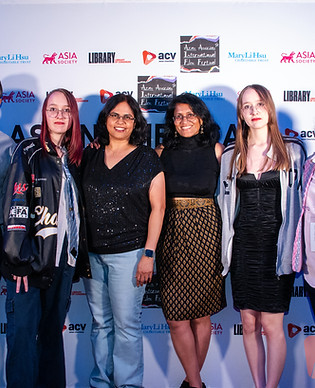
the story
An unexpected pregnancy compels an Indian immigrant mother to help her adopted twin daughters reconnect with their White birth mother and estranged Native American father, exposing raw class divides while transforming their understanding of identity and belonging.


"
It deals really well with a host of near-universal issues—identity, heritage, family connections—and is as insightful, interesting, and entertaining as it sounds.
Adam Pertman, President and CEO National Center for Adoption and Permanency

Loves gaming, one piece and skateboarding.

Is too complex to be defined.

is friendly and is scared of bugs

Loves gaming, one piece and skateboarding.
the cast


UPCOMING AND
PAST SCREENINGS
WISCONSIN PREMIERE
Beloit International Film Festival
Hendricks Center for the Arts
409 Pleasant St.

IMPACT - COMMUNITY SCREENING
Vermont Child Welfare Training Partnership, Vermont Consortium for Adoption and Guardianship
Burlington, VT
NEBRASKA PREMIERE
Omaha Film Festival
Aksarben Cinema - screen 6
2110 S 67th Street

MISSOURI PREMIERE
Nov 14, 5 pm B&B Theatres Creve Coeur West Olive 10 and Bowling
St. Louis, MI

COLORADO PREMIERE
Longest-running women's film festival in America, Colorado Springs, IL

48th Asian American Film Festival
Regal Cinema, Union Square
New York City, NY, USA

MARYLAND PREMIERE
Nov 8, 4:45 pm Fred Lazarus IV Auditorium Nov 9, 12:45 pm Parkway Theater 3
Baltimore, Maryalnd

director's statement
LOVE CHAOS KIN emerged from a deeply personal journey. As an Indian immigrant contemplating adoption, I found myself grappling with questions: Can I adopt in America? How do I preserve my language, culture, and religion while raising a child in a culture adjacent to their birth heritage? By showcasing the experiences of an Indian immigrant family and their adopted white-passing, Navajo-descent twins, it provides a counter-narrative and visibility to mixed American family dynamics. It advocates for adoption practices that prioritize children’s well-being and maintain connections with birth families. At a time of significant social and political strife on a global level, this film shows how everyday citizens bridge divides and unite for the children they love and care for.
the team

Distribution
LOVE CHAOS KIN will serve as a powerful catalyst to engage a diverse cross-section of American audiences, spreading the message of empathy and interconnectedness. Our two-year outreach campaign will advocate for ethical, child-centered adoption that maintains contact with birth families, and simultaneously imbue pride and belonging among 1st and 2nd generation South Asian and AAPI communities. Through targeted events, we’ll foster connection and empower communities to greater civic engagement.

supported by







.webp)

.png)







.png)











.jpg)



.jpg)
